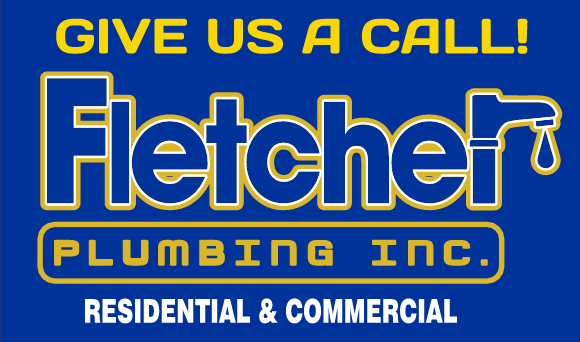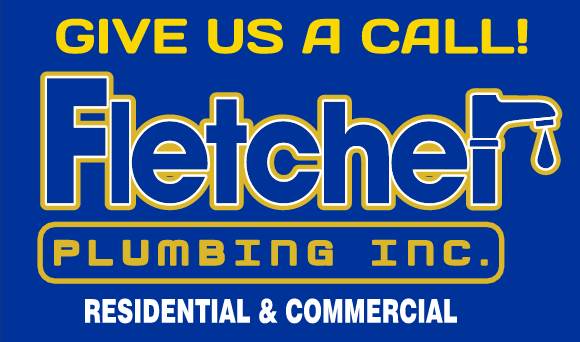Plumbing Frequently Asked Questions
What shall I do if flooding has occurred?
A. If flooding has occurred due to broken pipes, your first step is to shut off the water if possible. During office hours, call us (352-509-7130). After hours, holidays, or weekends, call our emergency number, 844-358-4766 (toll-free). Immediately also call a water extraction and drying/remediation company. Quickly removing water is vital to avoid damage to furniture, carpets, and all types of flooring. Removing water and moisture before it wicks into your walls is vital to prevent damage to drywall and prevent mold growth inside walls. In leak-based plumbing emergencies, cutting off the water stops flooding, helps minimize property damage, and saves you from a potentially huge water bill if your water supply is a utility water supply. If your water source is a private well, water cost is not a factor with leaks, but flooding and property damage still are.
How can I find hidden water leaks?
A. Hidden water leaks can be hard to spot, but if you suspect there is a leak, it should be found as soon as possible before extensive damage is caused. Signs of hidden water leaks include the sound of water running when everything is turned off., higher water bills, and wet spots on the floor/ceiling. Or if you see pools of water in your yard that have not been there before. Here at Fletcher Plumbing, we can help you and provide the service that you may need to solve this problem.
How can I prevent leaking pipes?
A. There are several ways to prevent leaking pipes. One is to measure the water pressure that is passing through the pipes. If the pressure is high, a plumber can address the issue so there is less stress on the pipes that could potentially lead to leaks. Another way to reduce stress on pipes is to install a water softener. Hard water minerals can cause corrosion and build up inside the pipes. If there is too much build-up, this can affect the water flow and leave you in need of a plumber.
Why is my faucet dripping?
A. Worn-out washers or other internal mechanism issues are likely the cause of your faucet dripping. A plumber can rebuild or replace the worn-out parts as necessary, and it is usually a fast and inexpensive job.
How do I eliminate foul odors coming from the garbage disposal?
A. Food debris is usually responsible for the foul odors in your garbage disposal. To eliminate the odors, run ice cubes or lemon/orange peels in the disposal for at least 30 seconds. Keep the disposal running and pour in some dish detergent. Keep it running for about 30 seconds to rinse everything away. If the odors are still persistent, give us a call.
I have a bad smell when I first turn on the hot water in the shower or kitchen. What is it?
A. Something in your water may be reacting with the sacrificial node at the top of your hot water heater. Or you could also have bacteria growth in your piping. In well water supplies, sulfur, a gas, may build up in your piping and be released when you first turn on water. Of course, if the sulfur concentration is high, you'll always smell it. Other bad smells include chlorine, which is used by utilities to sanitize water, manganese, and iron in concentrations of 3 parts per million or greater. Give us a call to check it out for you!
My toilet is running. Should I run after it and try to catch it?
A. If your toilet is constantly running, the sound you hear is the least of your problems. A running toilet means water is being wasted, which could spike your water bills. The problem is likely in the flush valve mechanism, and it may need replacing. Give us a call here at Fletcher Plumbing, and we can have this fixed in no time.
What are the most common concerns you get about water heaters?
A. Here are the most common concerns we hear regarding existing water heaters
- Water takes too long to heat
- Water at the far end of the house takes too long to get hot
- Hot water doesn't last long enough
- Water isn't hot enough, or temperature fluctuates
- Water heater tank or pipes and valves are rusty, old, or leaking problems with odors, hard water, or iron
My water heater is old and rusty, but it still works fine. Should I replace it or wait until it fails?
A. If your water heater is in your garage and no damage would be caused if water leaked out, slowly or quickly, you might choose to wait and get more service time from your old water heater. On the other hand, if your heater is inside the house and any leaks would cause damage, don't wait! Other reasons to change to a new heater include saving energy with a more efficient electric or gas heater or a tankless (instant) water heater.
Should I be concerned about the condition of my pipes?
A. The vast majority of the nation's water pipes were installed years after World War II and are in serious need of replacement or repair. In fact, half of all pipes in the U.S. were in poor shape, according to a 2010 report from the National Association of Water Companies and the U.S. Chamber of Commerce. According to a 2012 EPA fact sheet on Water Infrastructure and Sustainability, the average age of a broken water main in the U.S. is 47 years. Knowing the age of your pipes will help you to assess their need for repair.
I have mature trees near my water service lines. Is this a concern?
A. Invasive tree roots often "follow" and disrupt service lines. Roots seek out pipes because they provide essential elements that trees need to grow—water, nutrients, and oxygen. When tree roots get into pipes, they can cause clogs and blocks that lead to serious problems and the need for pipe repair.
How can I avoid clogs in my kitchen sink?
A. The most common cause of clogged sinks is the practice of disposing of "FOG" in your drain—fat, oil, and grease. Instead, put these in disposable sealed containers in your trash.
How can I avoid clogs in my toilet?
A. Toilet clogs can be caused by the disposal of cloth, rubber, or plastic items that can get caught in plumbing lines.
Do I need a permit to excavate and replace water or sewer pipes on my property?
A: Definitely! Excavations are costly, and you want to be sure the work is done properly. Having this type of work inspected is not only required but smart. Believe it or not, inspectors are there for your protection. Fletcher Plumbing has all excavation work inspected by the local plumbing authorities, and we guarantee all our work.
When would a typical homeowner or business owner need an excavation?
A: The two biggest items requiring excavation for residential and commercial properties are the replacement or repair of the main sewer line and the main water line. The main sewer line is the drain that connects the house or commercial building drainage system to the public drainage system. For example, all the drains from the different fixtures in a house connect to a single pipe called the main sewer line. That line exits the house and goes underground to a sewer that is located (typically) under the street. The main water line is basically the same except that water flows to the house, not away from the house, and the line delivers fresh water.
Have questions about plumbing? Find answers with Fletcher Plumbing. Call us at (352) 509-7130 to speak with a knowledgeable professional.







